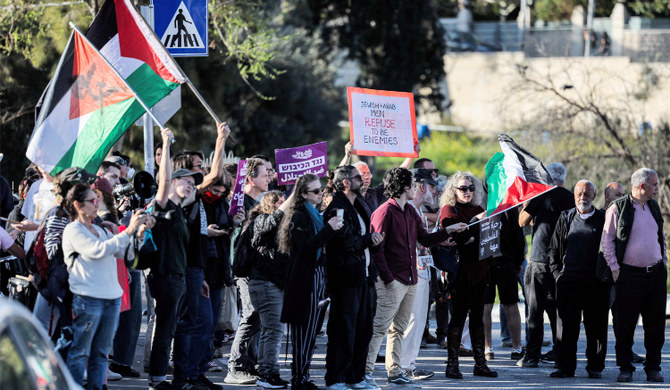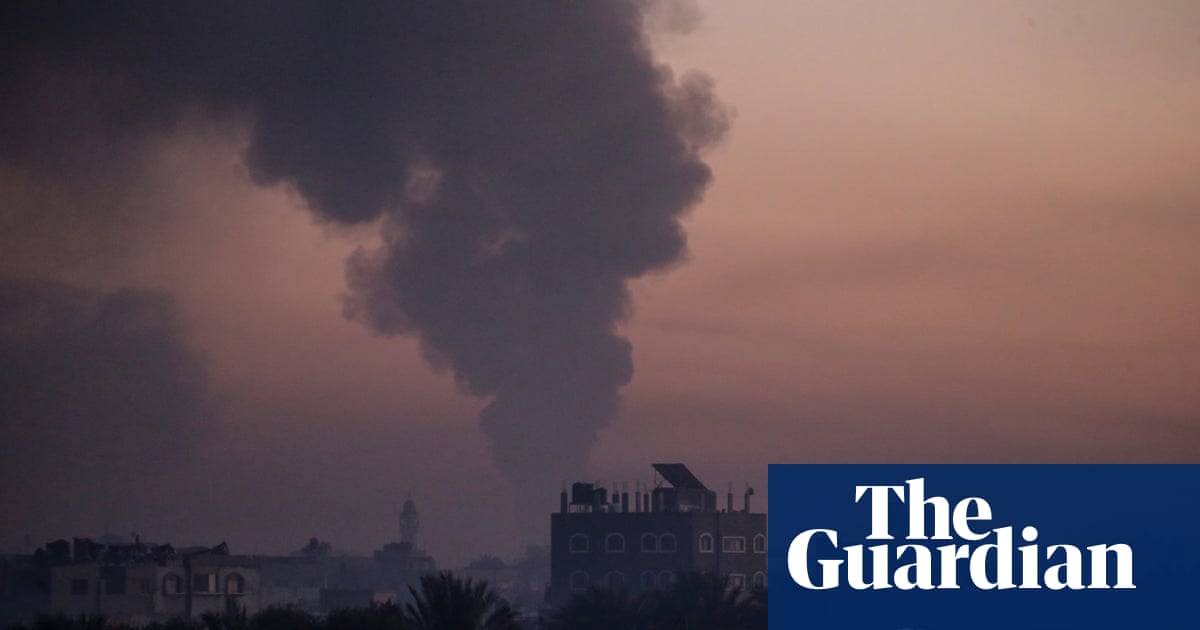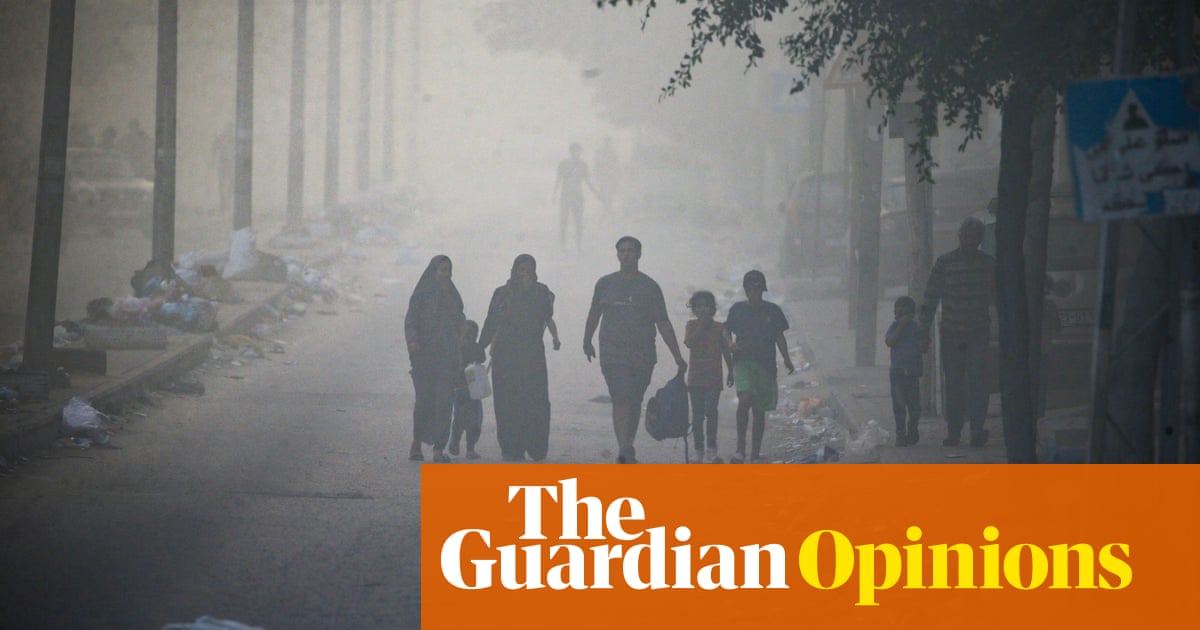
In the present circumstances it might seem peculiar, maybe even laughable, to be discussing peace between Israel and the Palestinians, and even more so to talk about peace based on a two-state solution. But is it?
The opposite should be argued. This is because by any objective indicator, relations between the two peoples are edging ever closer to an all-out confrontation, and while both societies are in internal disarray it is paramount to look for a peaceful solution that serves both peoples and is also sustainable.
Focusing only on the present situation, as worrying as it is, without looking constructively and realistically for a future solution might well perpetuate the current state of affairs and lead to something even worse.
Later this year marks the 30th anniversary of the Oslo Accords, which brought with them a hope of reaching a breakthrough in the decades-long Israeli-Palestinian conflict that would lead to a peace agreement based on a two-state solution. It could never have been a perfect agreement that was fair to all and satisfied everyone, but under very complex circumstances it aimed to meet the minimum requirements of most in both communities.
Thirty years later this dream appears to be lying in tatters, with no one in sight to revive it. But has pronouncing the two-state solution dead been premature?
Those who believe that the demise of the two-state solution is permanent have failed to offer a better, convincing alternative, and those who make the case for its revival haven’t produced a blueprint for it to happen. In the meantime, a recent survey by the Ramallah-based Palestinian Center for Policy and Survey Research, reveals a sharp decline in support for the two-state solution among both Palestinians and Israeli Jews, from 43 percent in September 2020 to a current 33 percent among the Palestinians and 34 percent among Israeli Jews.
This represents a low point in support for what not that long ago seemed to be the most sensible route to peace. The alternative to recognizing the right of both nations to self-determination is either to maintain the current situation and let it take its course in the more or less predictable direction of allowing the occupation to continue, the settlements to expand and with Israel’s creeping annexation of the West Bank and the incremental deprivation of Palestinians’ human and political rights.
There are also two other alternatives, which are: A single state in which equal rights are granted and guaranteed to everyone, or a single unequal state. Both of these have support in both communities, and most worryingly, among Israeli Jews for the first time there is more support, albeit by a small margin, for a single, unequal, non-democratic state rather than a two-state solution.
Yet, the aggregate figure of two states and one democratic state with equality for all is still considerably bigger, at 54 percent against the undemocratic trend, which is supported by 37 percent. Figures among Palestinians are not that different, although a two-state solution remains the favorite at 33 percent and an aggregate figure of 56 percent with those who support one democratic state, compared to 30 percent support for a single non-democratic state. This suggests that there is majority support for equal rights and self-determination for all, which could materialize in a two-state solution, prevailing in a one-state reality.
Those who believe that the demise of the two-state solution is permanent have failed to offer a better, convincing alternative.
Yossi Mekelberg
As much as the two-state solution looks like yesterday’s news, particularly in the way it was envisaged by the architects of the Oslo Accords, a more sophisticated variant is not out of the question, and on the balance of probability, more achievable than the alternatives. Most worrying, if unsurprising, of the figures coming out of this survey are the levels of distrust between the two sides, which are almost equal with 86 percent of Palestinians and 85 percent of Israeli Jews who “believe the other side is not trustworthy.”
Regardless of which side has better reason to distrust the other, no peace agreement, especially one which requires concessions that are perceived as painful and risky, can be reached with this level of distrust. Worse, we can only expect that the new Israeli government’s behavior will only deepen the Palestinians’ distrust of Israel, and as President Mahmoud Abbas of the failing PA is in his twilight days, the confidence of either side in Palestinian politics will remain low. Tragically, the legacy of the years that have elapsed since 1993 has seen more mutual suspicion than ever, and without addressing the variety of reasons for this with sensitivity and attentiveness, especially in light of recent events, such mutual distrust will only be exacerbated.
It takes only a quick glance at a map of the West Bank to reveal the most tangible reason for Palestinians, but also for some Israelis, to give up on a two-state solution. The nearly 250 Israeli settlements and outposts in the West Bank and East Jerusalem, which house about 680,000 Jewish settlers, compromise a future viable Palestinian state. There is no easy solution to that, but since neither of the one-state options is realistic, and neither is desired, for completely different reasons, by the majority, and while the current status quo is a recipe for continuing bloodshed and violations of Palestinians’ rights, adapting the two-state solution to the one-state reality with minimum movement of population remains the most viable option. It is just a question of whether both sides will return to this option before or after another major round of violence.
It would need a painstaking and creative effort with much active external persuasion to create a fresh, revised two-state model, that recognizes both people’s right to self-determination, that has Jerusalem as the capital of both, that can guarantee that everyone between the Jordan River and the Mediterranean Sea lives in security, and that ensures that the refugee issue is resolved in a fair and just manner so that no one remains stateless or uncompensated for their loss.
As well as these more tangible issues, it will require dealing with what many will regard as “boring” ones, but which are crucial to building support for such an agreement: Developing trust between both peoples, and investing in programs that advance joint educational, cultural and economic programs, in a spirit of equality and inclusiveness among all those involved. Right now, this might look like a mere fantasy, but making peace between peoples needs plenty of creative thinking, goodwill and the sense not to discard credible options because of bad experiences in the past, but instead to learn from them.
• Yossi Mekelberg is professor of international relations and an associate fellow of the MENA Program at Chatham House. He is a regular contributor to the international written and electronic media. Twitter: @YMekelberg












